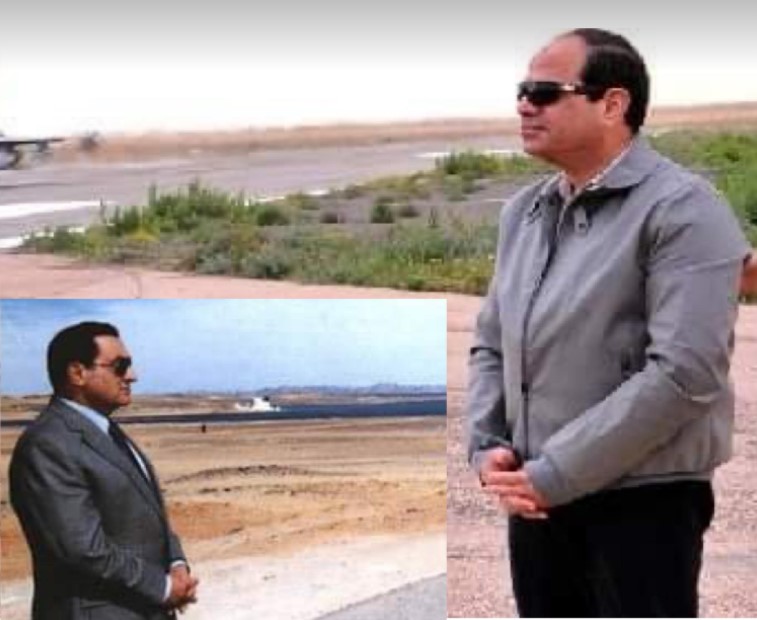The UN international statement against the human rights situation in Egypt hits Al-Sisi’s regime
“A sign of the beginning of a change in Western countries’ policies towards Egypt.” This is how the international lawyer, human rights defender, Toby Cadman described a statement issued by 31 countries at the United Nations Human Rights Council criticising the deterioration of human rights in Egypt.
The statement, which the Egyptian Foreign Ministry rejected, was signed by Britain, the United States, Canada, Australia, France, Germany, Italy, Austria, Belgium, Denmark, the Netherlands, Norway, Spain, Sweden, and Switzerland. The statement was read by a representative of Finland before the Human Rights Council in Geneva, urging the Egyptian authorities to stop trying activists under anti-terrorism laws and demanding their release.
The statement also demanded the lifting of restrictions imposed on the media and all detained journalists’ release and urged the Egyptian authorities to put an end to extending pretrial detention periods and to stop readmitting detainees to new cases. For the first time, the statement spoke on the issue of rearresting detainees after they were released from the courts. Cadman believes that this condemnation is long overdue. He expects a possible change in the countries’ approaches that signed the statement in dealing with Abdel Fattah Al-Sisi’s regime, which ignored all international criticism during the rule of former US President Donald Trump. The international human rights defender accused Al-Sisi’s regime of persisting in its practices and violations, which has led to the deterioration of the situation to tragic levels.
Sarah Leah Watson, Executive Director of Democracy Now for the Arab World, described the statement’s release as being significant. It seems that the Egyptian government is losing control of matters, and the statement indicates that the human rights situation in Egypt has become catastrophic. On whether the signatory countries are ready to take serious steps to stop their support for the Egyptian regime, Cadman said that time would tell what will happen after this statement. Much pressure was exerted on the signatory countries’ governments to stop their support and review their relations with Egypt and Al-Sisi. According to Cadman, there are also many calls to reform Egypt’s human rights situation and stop targeting human rights activists and journalists. The statement was “strong in every sense of the word” and that the denial made by Egyptian Foreign Ministry and various institutions, including the Egyptian parliament, “is not surprising.” Cadman pointed out that the deputies “live in an authoritarian military state that will not accept any condemnation of the forthcoming violations of human rights,” he said.
For its part, Amnesty International welcomed the joint statement, saying that the states sent “a clear message to the government of Egypt that the world will not turn a blind eye anymore to its campaign against the peaceful opposition.” This is the first time since 2014 that a declaration was directed to Egypt at the Human Rights Council after the sharp deterioration in the country’s human rights situation.
As for the writer Borzo Daragay, in an article in the British newspaper, The Independent, he said it was a “rare international reprimand.” The writer added that the United Nations Human Rights Council’s statement urged Egypt to stop the repression of human rights activists, civil society, and dissidents, many of whom are being persecuted under the pretext of fighting terrorism. Daragay said that among the countries that signed the statement were the USA, Britain, and other European countries, all of which are among Egypt’s foremost economic and military partners. However, none of the Western signatory countries indicated their willingness to stop arms sales to Egypt, which has boomed recently.
The Egyptian Foreign Ministry claimed, in a statement, that the report included “conversations sent based on inaccurate information.” Egypt called on the countries that issued the statement to “stop making accusations that only express an unpalatable political orientation that includes fallacies without foundation.” From this standpoint, digital state-sponsored trolls and pro-Sisi media began attacking Western countries and the United States, which issued the report. They accused these governments of supporting terrorism and terrorists and not respecting human rights, claiming that the report has a “political agenda and is in the interest of terrorist groups that seek to cause unrest in the country.”





Recent Comments